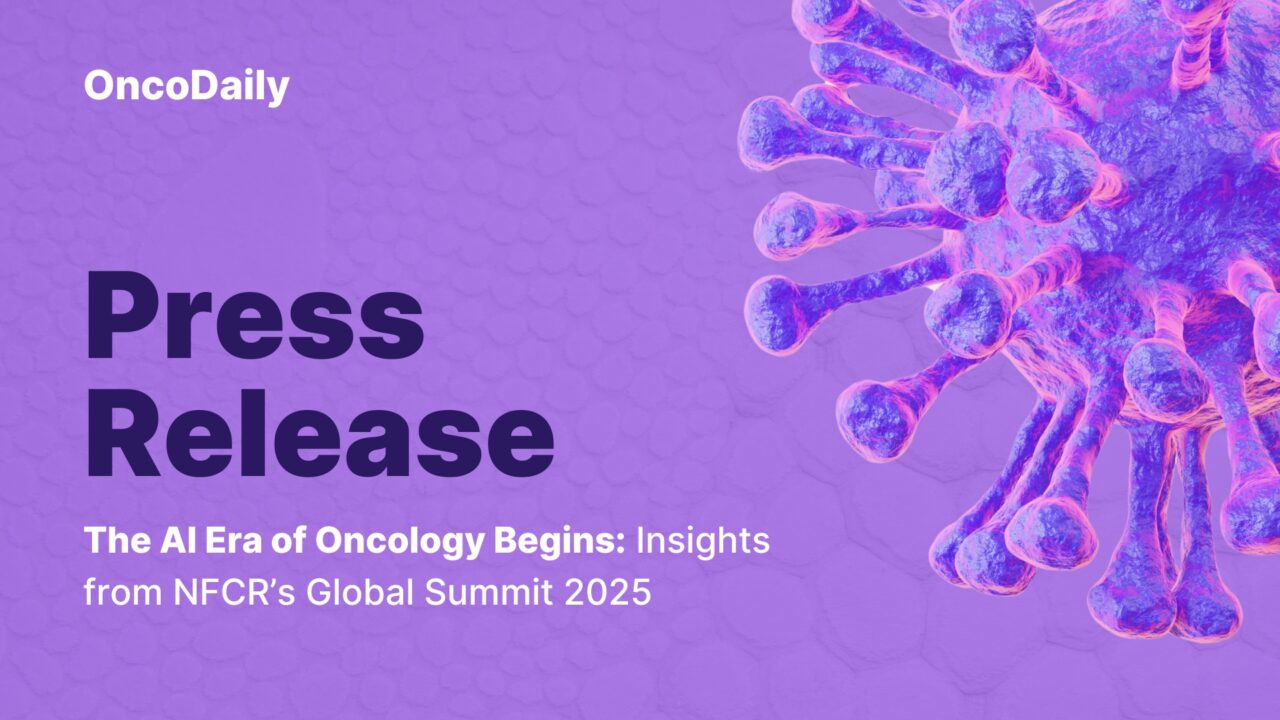World-renowned experts convene in Washington, D.C., to explore how AI, data-driven science, and entrepreneurship are transforming cancer prevention, detection, and treatment now and in the future.
The National Foundation for Cancer Research (NFCR) hosted its 2025 Global Summit and Award Ceremonies for Cancer Research and Entrepreneurship on October 24 at the National Press Club, in Washington, D.C., gathering many of the most forward-thinking minds in oncology, cancer research, technology, patient care, and biomedical innovation.
This year’s summit centered on a defining theme: how artificial intelligence (AI) is reshaping the entire ecosystem of cancer research and patient care, from laboratory discovery to bedside decision-making.
The Next Frontier: AI’s Expanding Role in Cancer Research
The day opened with a keynote address from Monica M. Bertagnolli, M.D., Senior Fellow in Healthcare Policy at the Harvard Kennedy School of Government and 17th Director of the National Institutes of Health. In her talk, “Cancer at the Community Level,” Dr. Bertagnolli emphasized that while AI tools are advancing rapidly, true progress depends on connecting technology with people. “Healthcare that works in Washington, D.C., might not work in rural Wyoming,” she reminded the audience. “We must ensure AI breakthroughs reach every community.”
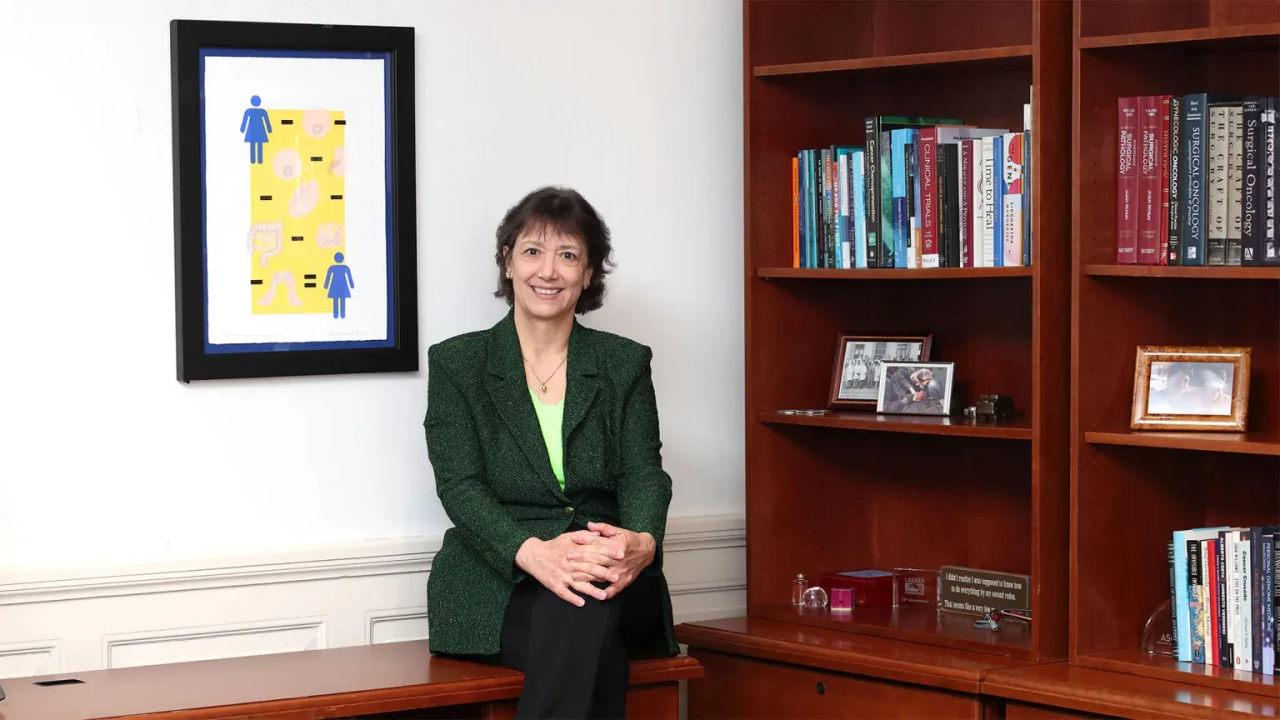
Her address underscored the importance of AI-driven public-health analytics, the patient–doctor relationship, and clinical research that reflects the diversity of America’s population. She also emphasized that the way healthcare data are collected, processed, and shared must evolve to transform real-world information into actionable insights that deliver immediate benefit to patients, clinicians, researchers, and policymakers. “AI datasets will not succeed in the real world,” she cautioned, “without a dramatic change in how health data from individual people are acquired and used.”
From Discovery to Impact: The AI Revolution in Cancer Research
Building on Dr. Bertagnolli’s message, the morning’s sessions explored how artificial intelligence is reshaping every stage of cancer research – from molecular discovery to patient care. Moderated by Kornelia Polyak, M.D., Ph.D. of Dana-Farber Cancer Institute, the opening panel featured Alexander Anderson, Ph.D. (Moffitt Cancer Center), Jeffrey A. Golden, M.D. (Cedars-Sinai Medical Center), Bruce E. Johnson, M.D. (Dana-Farber Cancer Institute), and Dan Theodorescu, M.D., Ph.D. (University of Arizona Cancer Center).
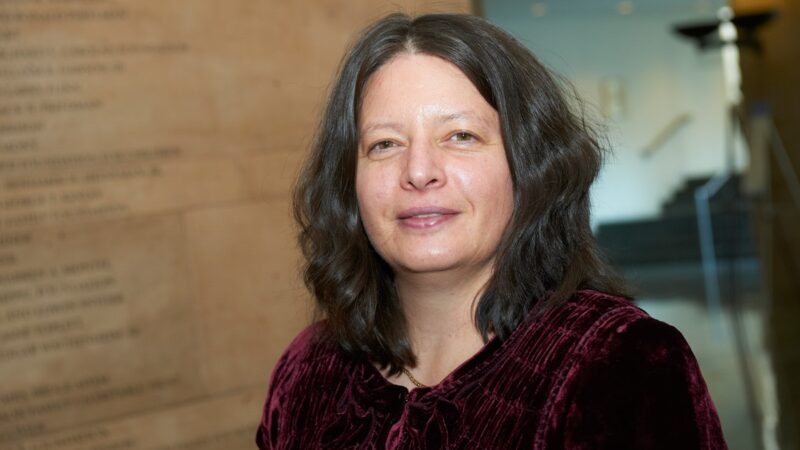
Dr. Polyak opened the discussion by emphasizing that cancer must be understood as an ecosystem – one influenced not only by tumor biology, but by the patient’s entire life history. “AI allows us to see beyond the tumor itself,” she noted. “It helps us connect genetic, immune, and environmental factors into one evolving picture.”
Dr. Anderson showcased how adaptive mathematical models – what he termed “virtual clinical trials” – are being used to test evolving treatment strategies in silico. His work in evolutionary therapy suggests that adjusting drug sequences and timing based on tumor feedback can slow resistance and extend a patients’ quality of life.
Dr. Golden discussed AI’s growing role in digital pathology, noting that while “AI will not replace pathologists, the pathologists who don’t adopt AI will be replaced.” Integrating multi-omics data into spatial pathology, he explained, can now detect subtle tumor variations invisible to the human eye, accelerating diagnosis and improving clinical decision-making.
Dr. Theodorescu introduced the concept of the molecular twin – a data-rich, patient-specific avatar that merges genomic, proteomic, and clinical data to simulate outcomes and predict treatment response. “By combining data from both the host and the tumor,” he explained, “we can build AI models that anticipate how a patient will respond before the therapy even begins.” His presentation on the “molecular avatar” underscored the promise of AI to democratize precision medicine, reducing vast datasets into accessible, affordable insights.
Dr. Johnson highlighted a future where AI systems are seamlessly embedded into electronic medical records, automatically prompting clinicians with trial-matching suggestions or care recommendations. His comments reinforced the shared vision across the panel: AI should augment the physician’s reach, not replace it.
Despite the optimism, speakers cautioned that AI’s potential depends on data integrity. “Garbage in, garbage out,” one participant remarked. “AI is only as good as the data we feed it.” Models must be designed around high-quality, representative inputs, or they risk amplifying bias rather than eliminating it. The discussion concluded that while AI can interpret massive datasets and reveal hidden trends, it cannot yet replicate the judgment, empathy, and nuance that define medical care.
AI in Cancer Diagnosis and Management
The second panel, moderated by Jennifer R. Grandis, M.D. of the University of California, San Francisco, expanded on how AI is transforming clinical workflows and decision support. Panelists included and Ruijiang Li, Ph.D. of Stanford University, Paul Macklin, Ph.D. of Indiana University, Maximilian Diehn, M.D., Ph.D. of Stanford University, and Kun-Hsing Yu, M.D., Ph.D. of Harvard University.
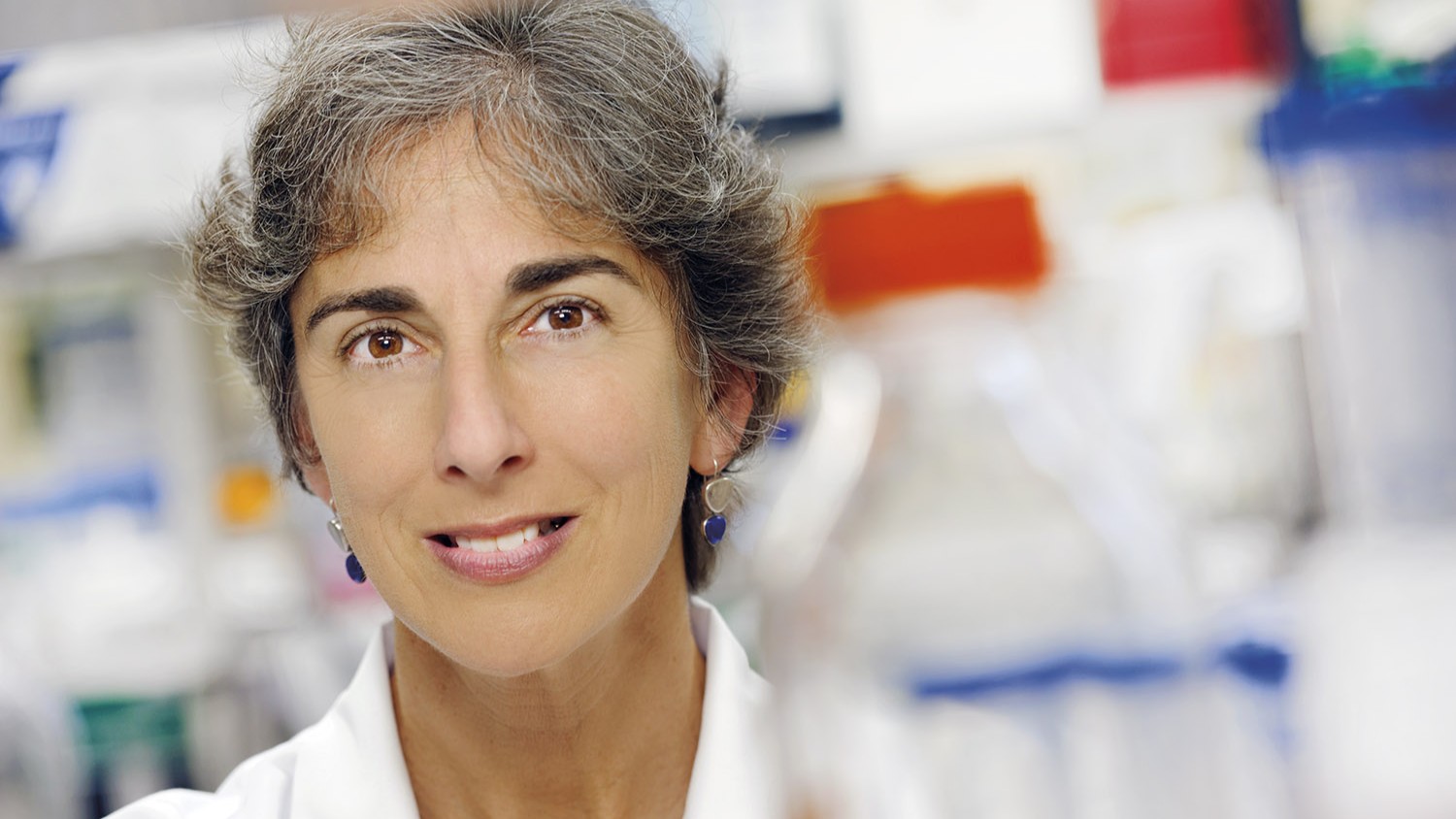
Dr. Yu described the development of uncertainty-aware AI systems in pathology – models capable of recognizing the limits of their own predictions. “Our goal,” he explained, “is to make AI more honest – to quantify and communicate its confidence so clinicians can trust when to act and when to question.” His team’s recent work enables algorithms to assign probability scores to diagnostic predictions, offering transparency rather than blind automation.
Dr. Maximilian Diehn, M.D., Ph.D., of Stanford University, focused on the role of multimodal AI in interpreting liquid biopsy data, which combines genetic, proteomic, and imaging information from patients’ blood samples. His team’s work uses machine learning to detect trace cancer signals earlier and with higher precision, potentially redefining how recurrence and residual disease are monitored.
Dr. Macklin defined the modern digital twin as a “continuously learning simulation” that evolves with each new patient scan or lab result. Borrowing from aerospace and industrial modeling, these virtual replicas can forecast how a specific tumor might behave or respond to therapy. “A digital twin isn’t static,” he said. “It’s a living model, constantly updated to reflect the real-world trajectory of a patient’s disease.”
Dr. Ruijiang Li, Ph.D., of Stanford University, discussed how foundation models – massive, pre-trained AI systems that can be adapted to specific medical tasks – are transforming radiology and imaging analytics. By learning across vast datasets of clinical scans, these models can detect patterns far too subtle for human recognition, supporting earlier and more accurate diagnosis.
Yet, as several panelists stressed, these powerful technologies must be deployed responsibly. “AI helps us see patterns humans can’t,” one remarked, “but it still needs humans to interpret what those patterns mean.”
AI in Early Detection and Prevention
The third session, moderated by Nathan Lear of AstraZeneca, brought together Ludmil Alexandrov, Ph.D. (University of California, San Diego), Lisa Coussens, Ph.D. (Oregon Health and Science University), Elana Fertig, Ph.D. (University of Maryland School of Medicine), and Samir Hanash, M.D., Ph.D. (The University of Texas MD Anderson Cancer Center).

Their discussion focused on using multi-modal data – genomic, environmental, lifestyle, and immune – to predict cancer risk years before symptoms appear. Dr. Alexandrov described AI-driven models capable of identifying mutational signatures linked to specific exposures, while Dr. Coussens highlighted the importance of integrating immune data to understand tumor initiation and progression.
Dr. Fertig shared advancements in predictive modeling that link spatial biology with clinical outcomes, while Dr. Hanash cautioned against “AI hype,” emphasizing the need for rigorous validation and collaboration between academia and industry.
Panelists agreed that AI’s role in prevention is not to over-screen, but to target wisely – using precision data to identify who is most at risk and why. As one noted, “The power of AI lies in its ability to personalize prevention, not universalize it.”
A Vision for the Future of AI in Cancer Research
In a separate interview following the sessions, Anna D. Barker, Ph.D., Chief Strategy Officer of the Ellison Institute of Technology and Co-Founder of the National Biomarker Development Alliance, reflected on where AI is headed – and what it will take to ensure its promise benefits patients.

Dr. Barker described artificial intelligence as “the most exciting scientific advancement of our lifetime,” one that could eventually surpass human intelligence and reshape the global economy. She emphasized that realizing AI’s full potential will require collaboration across every sector. “Researchers, nonprofits, and organizations must group together – share information, share data, and work collectively,” she said. “The real breakthroughs will come from cooperation, not isolation.”
She also cautioned that governments will not be the catalysts of this transformation. “This won’t come from the top down,” Barker said. “It will come from the private sector – from scientists, researchers, and innovators who see the possibilities and move quickly enough to make them real.”
Despite the optimism, Dr. Barker warned that the ethical and regulatory framework for AI remains dangerously underdeveloped. “Right now, it’s the wild west,” she said. “We need guardrails – we need to define what responsible AI in science looks like – because at this moment in history, we have everything to gain. But we have to act now to ensure we use AI wisely.”
Her comments echoed the broader tone of the Summit: that AI is not just a tool, but a transformative force – one that demands ethical foresight, transparency, and collaboration to truly change how cancer is understood and treated.
The Human Element in a Data-Driven Era
Across all sessions, a unifying theme emerged: AI enhances -does not replace – the human dimension of cancer care. The doctor–patient relationship, empathy, and contextual judgment remain irreplaceable. Speakers echoed that while AI recognizes massive patterns, it still struggles with the small, human details that make medicine work.
“AI is extraordinary at identifying global trends,” Dr. Sujuan Ba, President and CEO of the National Foundation for Cancer Research summarized, “but the local dynamics – the patient’s story, their community, their biology – are where people still matter most.”
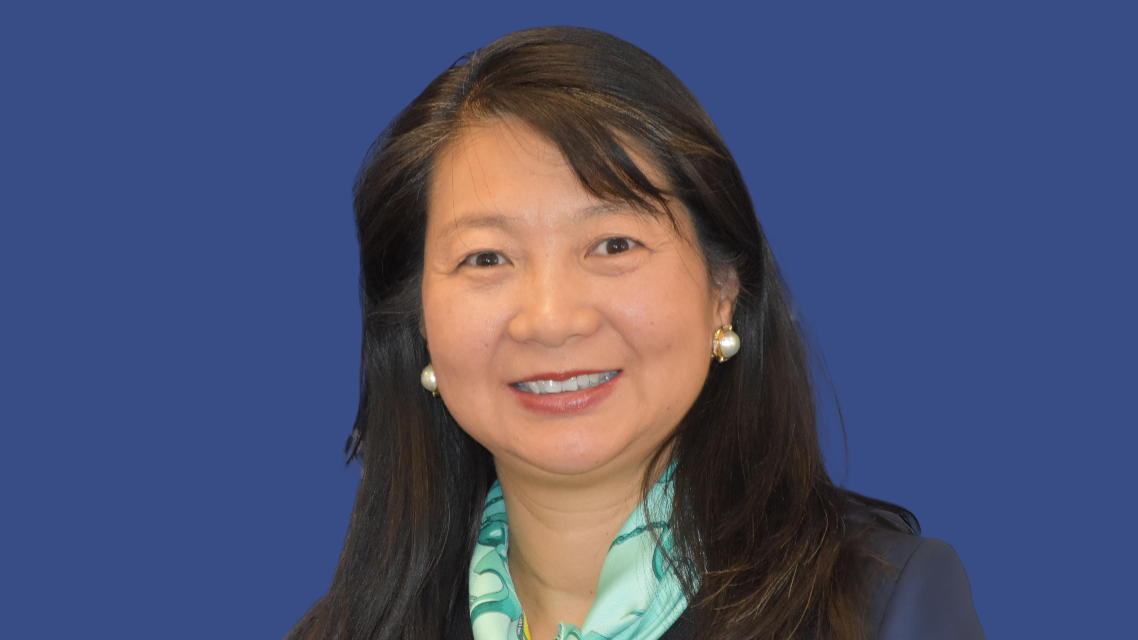
The 2025 NFCR Global Summit reinforced the organization’s leadership in uniting the world’s top scientific minds to confront these questions head-on – ensuring that innovation in artificial intelligence serves not only science, but humanity.
About the National Foundation for Cancer Research
The National Foundation for Cancer Research (NFCR) is a 501(c)(3) nonprofit organization co-founded in 1973 by Nobel Laureate Dr. Albert Szent-Györgyi and attorney/business entrepreneur Franklin Salisbury, Sr. NFCR provides scientists in the lab with the critical seed funding they need to make game-changing discoveries in cancer detection, treatments, prevention, and ultimately, a cure for all cancers.
NFCR has distinguished itself in the cancer research sector by emphasizing “high-risk, high-impact” long-term and transformative pioneering research fields often overlooked by other major funding sources. With the support of more than 5.7 million individual donors over the last 52+ years, NFCR has provided more than $420 million in funding to cancer research, prevention, and public education. NFCR-supported research has led to some of the most significant life-saving discoveries that benefit patients today.
You can find more posts featuring NFCR on OncoDaily.


